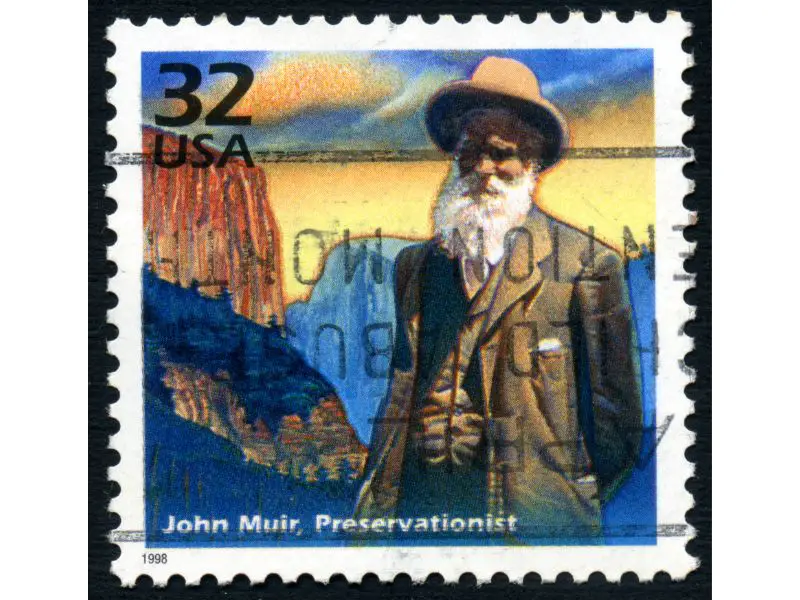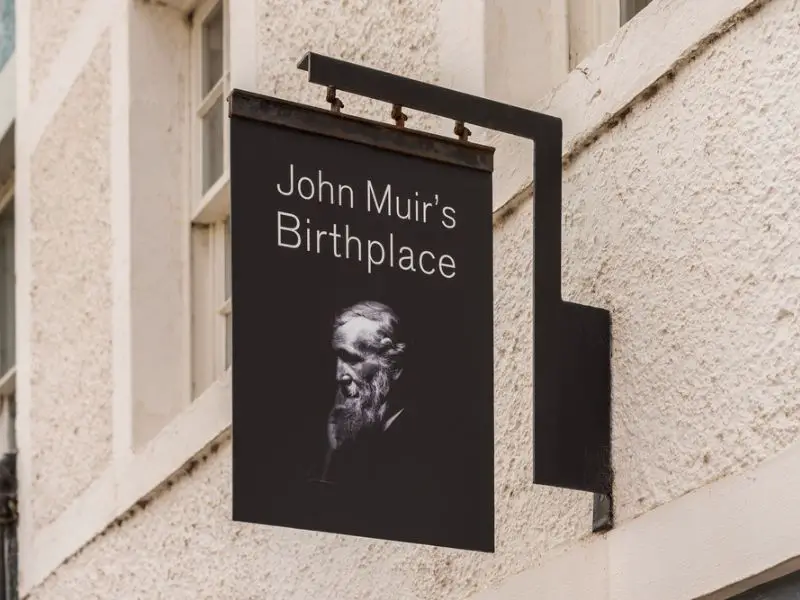“The mountains are calling, and I must go” -John Muir.
Who exactly was this legendary explorer? A prophet of the wilderness. A philosopher of the environment. A man whose ideas and actions pushed President Theodore Roosevelt to adopt more innovative wilderness conservation programs. John Muir indeed loved the mountains, and his principles were gleaned from his time in the wilderness.

Muir dubbed perhaps two of the most famous nature quotes: the first one at the beginning and the second, “Thousands of tired, nerve-shaken, over-civilized people are beginning to find out that going to the mountains is going home; that wildnes is a necessity.” His thoughts were unlike those of any other writer. He was an ecologist and naturalist of time.
While John Muir’s words are inspiring in and of themselves, his passion for nature and his far-reaching journeys that stretched as far as the glaciers of Alaska and the forest of Amazon reminded people of the need to maintain the Earth’s natural beauty. He expressed his trips in such a poetic manner that nature was romanticized, and it was not long before people began to follow his footprints. In this article, I’ll cover John Muir’s early life, years of his wanderlust, and some of his most excellent passages. Let’s go!
Early Life and Travels
John Muir, also called “John of the Mountains” and “Father of National Parks,” was born in Dunbar, Scotland, in 1838 to a large family. He was the 3rd of eight children. By the time John was 11 years old, the Muirs had migrated to the U.S., buying farmland near Portage, Wisconsin, where they had settled to live.

John’s Father
Daniel Muir, John’s father, was very strict with his son education. A man so tough he maltreated Muir, sometimes physically abusing him. Muir’s father was a Presbyterian minister who demanded his son memorize the Bible, a habit that influenced Muir’s writing later in life.
A Young Inventor
Despite his father’s disapproval, Muir created a few small innovations. According to his Biography, he invented a horse feeder, a table saw, a wooden thermometer, and an alarm clock with a twist (a device that forced him out of bed first thing in the morning). In his early twenties, Muir took some of his inventions to the state fair in Madison, where he won prizes and gained a local reputation for his craftsmanship.
The Great Outdoors Shaped Him Into the Man He Is Today
Muir attended the University of Wisconsin and majored in science, philosophy, and literature with hopes of attending medical school. However, after being influenced by the works of naturalist philosophers Ralph Waldo Emerson and Henry David Thoreau in college, he realized his genuine interest was botany. After spending the summer hiking in the great outdoors with friends, he dropped out of college to pursue botany and explore the natural world.
An Injury Changes His Path
Muir took humble jobs to finance himself, including working at an Indianapolis carriage parts factory. There, he suffered an accident that temporarily blinded him. After he recovered his sight, he became so determined to spend the rest of his life exploring nature. “God has to nearly kill us to teach us lessons,” he once said.
John Muir’s Years of Wanderlust
Muir began exploring the world after regaining his vision. At one time, He traveled 1,000 miles from Indianapolis to the Gulf of Mexico on foot. He traveled to Cuba, intending to finally reach the Amazon jungle in Brazil. But Muir grew ill and decided he needed to rest somewhere more temperate. He flew to New York City, then by boat to Panama, then by rail and boat to San Francisco, where he arrived in March 1868.
The Father of National Parks
Yellowstone was the only national park in existence in 1890. Muir sought the portion of Yosemite that was a state park at the time to reach national park status. Since he had written so many passionate essays about his opinions, his followers and organizations started to influence Congress to favor the need for a new national park.
Despite opposition from loggers and those who saw parks as a waste of resources, both Yosemite and Sequoia national parks were established by an act of Congress. Muir later became instrumental in establishing national parks such as Mount Rainier, Petrified Forest, and the Grand Canyon.
Muir created the Sierra Club in 1892 to “do something for wildness and make the mountains cheerful glad,” as he expressed it so eloquently.
In 1903, Roosevelt went camping with Muir above Yosemite Valley, where Muir asked Roosevelt for aid in preserving the area’s grandeur. Then, Muir’s plea moved Roosevelt. During his presidency, Roosevelt established 148 million acres of forest reserves and doubled the number of national parks.
The Sierra Club
Founded in 1892 by John Muir, Sierra Club’s main goal was to “do something for nature and make the mountains glad.” The Sierra Club is the United States’ oldest, largest, and most influential environmental group. Muir was the Sierra Club’s president until he died in 1914. The organization now has over 3 million members and supporters.
The Sierra Club’s efforts may be seen in their contributions to helping pass the Clean Air Act, the Clean Water Act, and the Endangered Species Act. The Sierra Club safeguards millions of acres of wilderness and has contributed to developing a conservation ethic that will allow future generations to enjoy the beauty of protected lands for many years.
Related: Invasive Species in Michigan, Most Endangered Species in the World, Most Endangered Plants in the World
10 of John Muir’s Greatest Quotes
- “In every walk with nature, one receives far more than he seeks.” -John Muir.
- “Oh, these vast, calm, measureless mountain days, days in whose light everything seems equally divine, opening a thousand windows to show us God.” -John Muir.
- “I am learning to live close to the lives of my friends without ever seeing them. No miles of any measurement can separate your soul from mine.” -John Muir.
- “The rivers flow not past, but through us, thrilling, tingling, vibrating every fiber and cell of the substance of our bodies, making them glide and sing.” -John Muir.
- “Yosemite Park is a place of rest… None can escape its charms. Its natural beauty cleans and warms like a fire, and you will be willing to stay forever in one place like a tree.” -John Muir.
- “Nature is ever at work building and pulling down, creating and destroying, keeping everything whirling and flowing, allowing no rest but in rhythmical motion, chasing everything in endless song out of one beautiful form into another.” -John Muir.
- “The clearest way into the universe is through a forest wilderness.” -John Muir.
- “Keep close to nature’s heart… and break clear away, once in a while, and climb a mountain or spend a week in the woods. Wash your spirit clean.” -John Muir.
- “This grand show is eternal. It is always sunrise somewhere; the dew is never all dried at once; a shower is forever falling; vapor ever rising.” -John Muir.
- “The battle for conservation must go on endlessly. It is part of the universal warfare between right and wrong.” -John Muir.
Muir has significantly contributed to protecting and preserving America’s great outdoors. His belief that wilderness regions should be officially preserved as national parks have allowed generations of Americans to appreciate America’s landscapes in their pristine state, devoid of human industrial interference. Muir’s words continue to inspire naturalists and conservationists throughout the United States and the world.
“When we try to pick out anything by itself, we find it hitched to everything else in the universe.” -John Muir.

